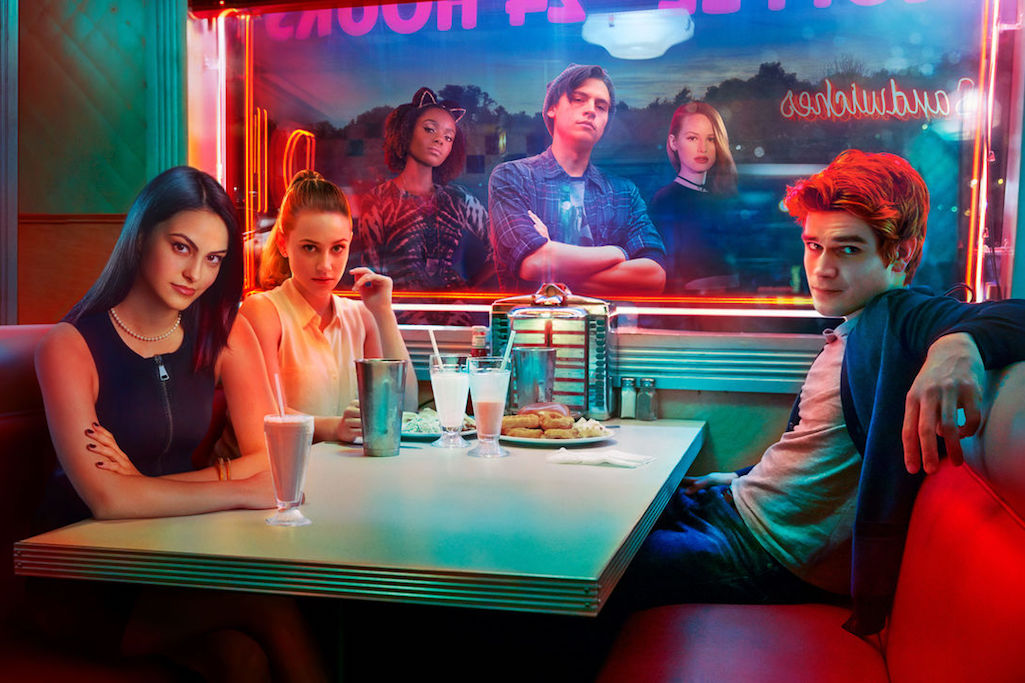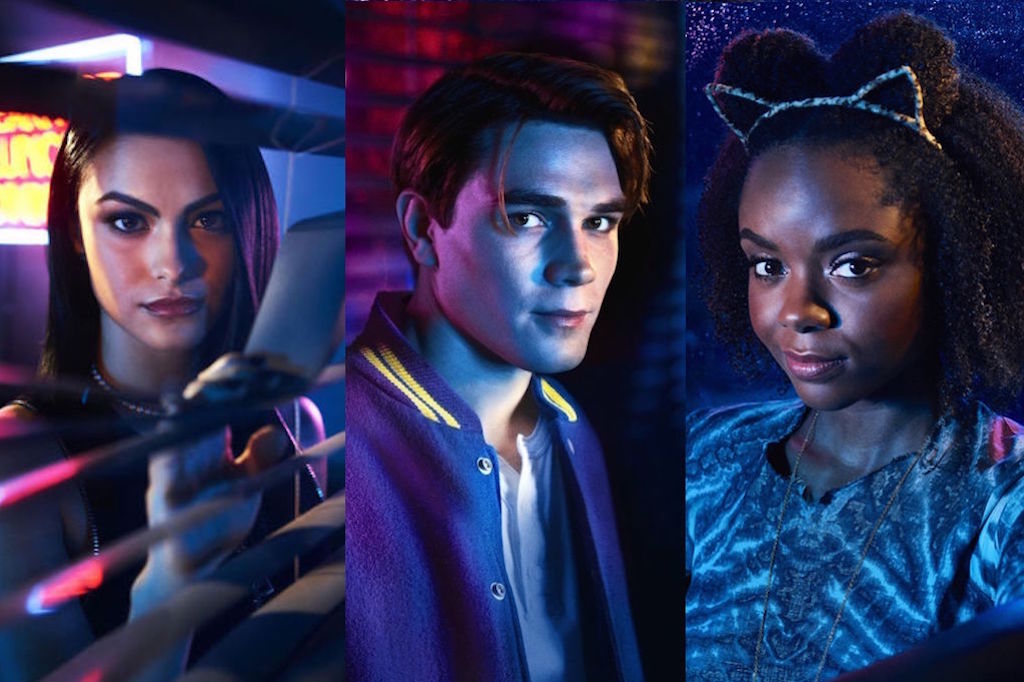Why I’m Finally Giving Up On ‘Riverdale’
Is this show actually giving us enough pleasure to be a guilty pleasure?

Spoilers for Riverdale!
Riverdale is the kind of show you love for being so bad it’s good. But at a certain point, is it just too bad to deserve our love?
I’ve been a dedicated Riverdale fan since day one. I’ve watched every episode, speculated who killed Jason Blossom, been emotionally invested in Bughead and live-texted my mates with my thoughts and analysis of each new episode. The show has always had its faults, but it was never enough to get me to withdraw my support. Until now.
With the show giving us a finale-like episode to wrap things up for their Christmas break, it’s prompted some serious reflection on how much I can vouch for what the show has become, and now the doubts are rolling in full throttle. We’re not even halfway through season two and the show has become more of a mess than any of us signed up for.
It’s reached a point where I’m faced with the decision to Riverdale, or not to Riverdale, and I need to evaluate whether I’m actually getting enough pleasure for the show to keep passing as a guilty pleasure.
What Do We Want From “Bad TV”?
Riverdale’s major selling point was always that it’s extraordinarily ridiculous. We get our kicks watching extremely good-looking teens leading melodramatic lives — it’s a tried and tested way to our hearts (see The O.C., Gossip Girl, and just about any other CW produced show). We don’t condemn Riverdale for being extra, or for the absurdity of its plotlines, those are the things that made it so damn enjoyable in the first place.
Unfortunately, after the enthusiastic reception season one received, season two was rushed through production in less than five months in an attempt to strike while the iron was still hot. So even though this season upgraded from 13 to 22 episodes to play with, all the action feels rushed because it’s poorly formed.
Plotlines are haphazardly developed and resolved without giving us the time to care, and they need us to care if they want us to keep watching. With most break-ups lasting less than an episode, it’s hard to get that revved up about whatever ship is momentarily jeopardised and who kissed who in-between. And how can we feel anything about Black Hood culprits we have zero emotional investment in?
Fumbling brusquely through season two’s ‘narratives’ might make fans less attached to the action, but that’s not the show’s key sin. The collateral damage of their steamboat approach is what is unforgivable. Some plotlines required a lot more care than Riverdale dished out and that can’t be excused as a stylistic feature. You either deal with it right or don’t touch it at all.
We’ve Been Hooked On Halfway Woke
Riverdale still has a reputation for being pretty damn socially aware. The show doesn’t shy away from important issues like queer experience, sexual assault, racial privilege and sexism. But, when you look closely, they only get it kind of right and only some of the time.
If you’re going to incorporate tackling significant social issues into your teen drama niche, then you’ve gotta be consistent. Riverdale’s first season lulled us into a premature impression of woke-ness with wins like the relatively diverse cast, the entire episode dedicated to girls standing together against slut shaming and ‘The Pussycats’ schooling Archie on his white-boy privilege. We’ve been waiting for mainstream teen shows to get around this kind of content so we ate it right up.
But tangled up in and around those plotlines, we also got enough major fails to begin to tip the scales in the other direction. The episode that sought ‘justice’ for slut shaming did so at the expense of Riverdale’s first black teen character, who was reduced to a tired racial stereotype and seemingly sentenced to violence at the hands of a white woman, begging for mercy. Not the best scenario to play out in the thick of the Black Lives Matter movement.
Meanwhile, Betty’s anxiety and self-harm is never addressed, Ms Grundy’s relationship with Archie was never dealt with as a case of sexual assault and as a climactic point of failure, Cheryl’s attempted suicide was brushed off with a cursory hot chocolate. It’s been a ride, but we stayed buckled in for season two.
Is Season Two The Breaking Point?
The second season of Riverdale has been playing that same game of push and pull that we were set up to expect, except the disappointments might just be pushing us too far. We’re only nine episodes deep and there’s already been more what-were-you-thinking plot devices than we can let slide.
There have been, of course, some key winning moments that have played in Riverdale’s favour and roped us in, like Kevin’s emotional monologue on straight privilege in episode three. Kevin has mostly played out the gay best friend stereotype on the show, so it was refreshing to hear him school Betty on the struggle of being queer in a small town.
“You act like we’ve got the same set of opportunities,” Kevin tells Betty. “But we don’t.”
Then the show decided to tackle sexual assault, which ended up being particularly sensitive given the post-Weinstein, #MeToo climate in which it aired. Their bold plot saw Nick St. Clair, a fresh antagonist, attempt to coerce Veronica into sex before drugging and attempting to rape Cheryl. Riverdale made two of its main characters victims of assault and with that comes a responsibility to see that narrative through, which hasn’t exactly been the case.
The sexual assault narrative was dealt with surprisingly well, for exactly one episode following the events. Riverdale incorporated how gas-lighting, denial and coercion come into play in the aftermath of assaults before seeming to drop the ball completely. In a crucially stupid turn of events, Riverdale has traded in dealing with Cheryl’s trauma for turning her into a harmful stereotype that aligns queerness with perversion.
Cheryl has started sporting a sudden stalker-ish obsession with her best friend Josie that can only be described as creepy and deranged. Sending Josie “I’m watching you” teddy bears, making unwanted advances to rub lotion on her in the locker rooms and leaving her a pig’s heart as a gift is a monumentally poor representation of queerness. It plays into a tired trope of pop-culture portraying LGBTIQ+ characters as unbalanced and perverted. Fans were not happy.
The Riverdale fandom being happy Cheryl is bi/queer is terrible bc they made her a creepy stalkerish girl which isn't the representation we want plus Cheryl need some therapy for all her trauma. CW need to stop with their shit when it comes LGBT characters.
— Enya (@timechronicles) November 30, 2017
Us: can we pls get queer and happy Cheryl?
Riverdale: oh did u say make her suffer more and add another harmful queer stereotype to the show? Sure!#Riverdale— Kai (@peculiar__star) November 30, 2017
Showrunner Roberto Aguirre-Sacasa has promised that “we’re gonna be tracking the effects of [sexual assault] in the short and long term”, but from what we’ve seen so far, it’s hard to see this being done right.
It’s the same pattern. They fill the script with buzzwords like “toxic masculinity” and “male gaze” that make you feel pretty good about the show on a superficial level, then hit you with a strip-tease scene featuring 16-year-old Betty in front of a bar full of old dudes. The inconsistency is exhausting.
We’ve given this show a lot of chances, and I really wanted it to succeed, but with its cavalier anything-goes approach to narrative there’s too much collateral damage piling up for me to stay behind Riverdale into 2018.
Sophie Giles is a freelance writer based in Sydney.

